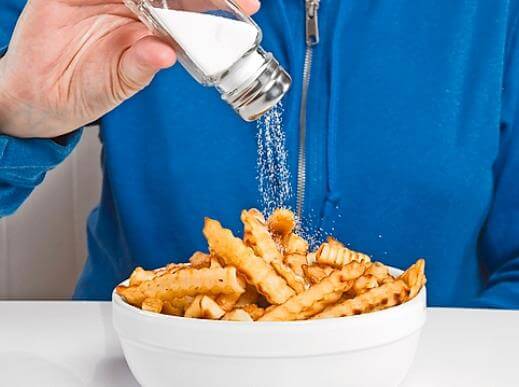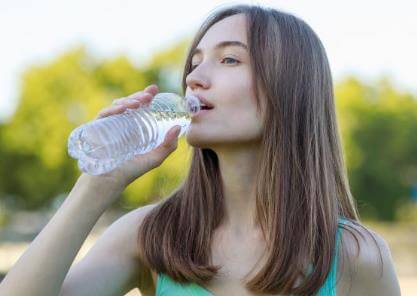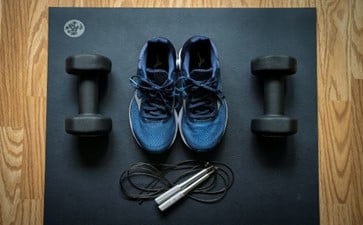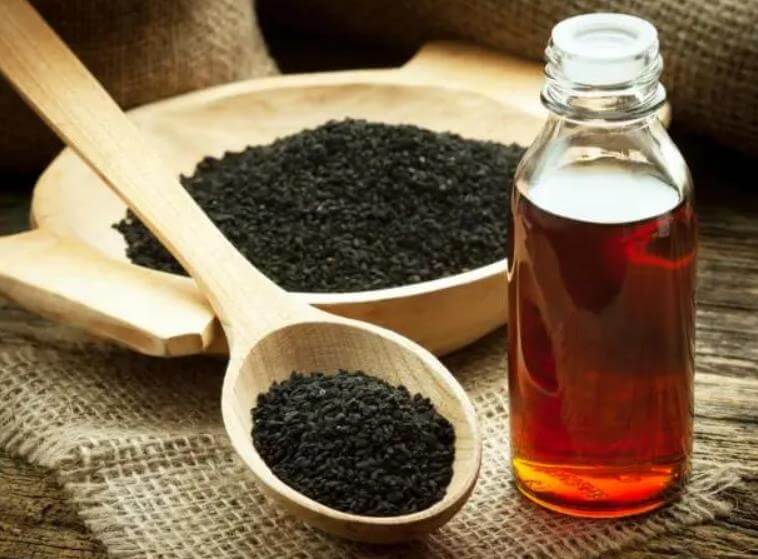Fluid retention, also referred to as water retention or edema, is a prevalent occurrence that can result in temporary weight fluctuations, uneasiness, and even a modified appearance. It transpires when surplus liquids accumulate within the body, causing bloating and swelling, primarily in the extremities like the hands, feet, and ankles. This fluid disproportion can occasionally lead to a swollen face and produce the semblance of a weight increase, making attire feel snug and uneasy.
Though fluid retention can be vexing and even impact your overall assurance and well-being, it’s vital to comprehend that it’s generally a short-term concern that can be resolved by addressing the root causes. Recognizing and confronting the elements contributing to fluid retention can aid you in reclaiming control over your body’s liquid equilibrium and fostering overall health.
In this piece, we will delve into the principal causes of fluid retention and offer you ten swift and efficient methods to eliminate those additional pounds. By grasping these causes and applying the recommended approaches, you can effectively manage fluid retention, avert its reoccurrence, and sustain a healthy weight. Bear in mind that it’s always crucial to consult a medical professional if you have apprehensions about persistent fluid retention, abrupt onset of symptoms, or other health complications.
8 Causes of Water Weight
1. High sodium intake

Ingesting elevated amounts of sodium may lead to fluid retention within your body(
1
). Sodium attaches to water and augments the liquid content in your cells, resulting in water retention. Processed edibles, preserved products, dining out, and quick-service meals frequently contain high levels of sodium, making it crucial to track your consumption and opt for more nutritious food alternatives. Pay attention to concealed sources of sodium, including flavor enhancers, marinades, and toppings for salads.
2. Hormonal fluctuations
Changes in hormonal balances, particularly in women, can lead to the retention of fluids(
2
). For instance, fluctuations in estrogen and progesterone during the menstrual cycle might trigger temporary water weight gains. Hormonal irregularities associated with menopause, polycystic ovary syndrome (PCOS), or endocrine disorders can also contribute to retaining fluids.
3. Poor hydration

If you fail to consume sufficient water, your body might attempt to preserve liquids by holding onto water. Ensuring adequate hydration assists in maintaining the equilibrium of electrolytes within your body and warding off fluid retention(
3
). Remember that your water requirements may rise during physical activity, warm climates, and throughout pregnancy or lactation.
4. Lack of exercise
Consistent exercise is crucial for upholding a healthy weight and supporting blood flow(
4
). Leading a sedentary life can contribute to inadequate circulation and fluid retention, particularly in the lower limbs. Furthermore, physical activity aids your body in managing its liquid equilibrium by activating the lymphatic system, which is responsible for eliminating surplus fluids.
5. High carbohydrate consumption

Upon ingesting carbohydrates, your body transforms them into glycogen, which is preserved in your muscles and liver as an energy source. Roughly 3 grams of water accompany each gram of glycogen(
5
), resulting in increased water weight. Excessive consumption of carbohydrates, particularly refined ones, can lead to fluid retention. Following a well-rounded diet with a suitable quantity of carbohydrates can help avert this problem.
6. Medications
Numerous medications, encompassing nonsteroidal anti-inflammatory drugs (NSAIDs)(
6
), and antihypertensive treatments, particularly oral contraceptives, and corticosteroids, can result in fluid retention as an inadvertent outcome. If you postulate that your medication is engendering water weight gain, it is prudent to consult with your healthcare specialist. They may recommend alternative therapies or adjust your dosage to minimize fluid retention.
7. Stress

Prolonged stress can result in elevated cortisol levels, potentially causing your body to hold onto water. Increased cortisol levels can also trigger hunger, resulting in overconsumption and weight gain(
7
). Addressing stress via relaxation methods, physical activity, and adequate rest can aid in lowering cortisol levels, preventing fluid retention, and enhancing overall wellness.
8. Underlying health conditions
Continuous fluid retention might indicate a deeper medical issue, such as complications with the kidneys or heart, liver ailments, or thyroid disorders(
8
). Conditions like lymphedema, venous insufficiency, and congestive heart failure can result in excess liquid accumulation in the extremities. If you encounter unaccountable or enduring water weight increases, swelling, or unease, it’s vital to seek guidance from a healthcare expert for a thorough assessment and diagnosis. Prompt detection and intervention can effectively manage these conditions.
10 Fast Ways to Lose Water Weight
1. Stay well-hydrated
Adequate water consumption enables your body to sustain its electrolyte equilibrium and avoid fluid retention. Endeavor to drink a minimum of 8-10 glasses of water daily, adapting your intake according to your exercise regimen and the prevailing conditions. Furthermore, integrating water-abundant foods, like fruits and vegetables, can improve your overall hydration state.
2. Reduce sodium intake

Diminish your consumption of processed and high-sodium foods, selecting fresh fruits, vegetables, and lean protein sources as a substitute. Preparing meals domestically affords you the ability to regulate sodium content, and employing herbs, spices, and vinegar as alternatives to salt can augment the palatability of your dishes. Examine food labels to detect concealed sodium sources and make educated decisions.
3. Increase potassium intake
Foods abundant in potassium, like bananas, avocados, spinach, and sweet potatoes, can assist in balancing sodium concentrations in your body and encourage a healthy fluid equilibrium. Incorporating these foods into your diet may help diminish fluid retention. Furthermore, potassium fosters appropriate muscle functioning and contributes to maintaining healthy blood pressure.
4. Monitor carbohydrate consumption
Ingest carbohydrates moderately, opting for complex carbs such as whole grains, legumes, and starchy vegetables over refined carbs present in white bread, pasta, and sugar-laden snacks. This approach helps avert extreme fluid retention linked to high carbohydrate consumption while supplying your body with vital nutrients and fiber for peak health.
5. Exercise regularly

Participating in consistent exercise encourages circulation and assists your body in upholding a healthy liquid equilibrium. Aim to achieve at least 150 minutes of moderate-level aerobic exercise or 75 minutes of high-level aerobic exercise weekly, accompanied by resistance workouts. Engaging in physical activity also stimulates the lymphatic system, allowing your body to eliminate excess fluids more effectively.
6. Prioritize sleep
Sufficient rest is crucial for handling stress and preserving hormonal equilibrium. Target 7-9 hours of high-quality sleep each night to facilitate your body’s inherent processes, encompassing fluid balance. Develop a consistent sleep routine, devise a calming pre-sleep ritual, and guarantee a comfortable sleeping space to enhance sleep quality.
7. Manage stress

Integrate stress-relief methods such as mindfulness, meditation, deep breathing exercises, and
yoga
into your everyday schedule. Effectively addressing stress can aid in decreasing cortisol levels, minimizing fluid retention, and bolstering overall wellness. Immersing yourself in hobbies, enjoying nature, and fostering connections with friends and family can further contribute to stress reduction.
8. Limit alcohol and caffeine intake
Alcohol and caffeine may both lead to dehydration, potentially causing fluid retention(
9
). Restrict your intake of these drinks and choose hydrating substitutes, like water, herbal teas, or coconut water. Moderation is essential for sustaining a healthy liquid equilibrium and reducing the likelihood of dehydration.
9. Incorporate natural diuretics

There exists an array of natural substances that can effectively regulate your body’s fluid equilibrium. Notable examples encompass green tea, dandelion tea, asparagus, parsley, and celery. These substances function by inducing your body to expel surplus water through urination. It is crucial to exercise vigilance concerning potential hazards associated with these remedies, particularly in the presence of underlying medical conditions or concurrent usage of medications that may interact with these substances. Consulting a healthcare professional before integrating these substances into your regimen is highly recommended.
10. Consult a healthcare professional
Should you encounter continuous or inexplicable fluid retention, seek guidance from a healthcare expert for a thorough assessment and diagnosis. They can assist in identifying whether an underlying health concern is contributing to water weight increases and offer suitable treatment alternatives. Moreover, a registered dietitian or nutritionist can aid you in devising a tailored meal plan to cater to your requirements and encourage a healthy liquid equilibrium.
Key Takeaways
Grasping the reasons behind water weight increases is vital for effectively controlling and shedding additional pounds. By tackling contributing factors to fluid retention, such as elevated sodium consumption, hormonal shifts, insufficient hydration, and stress, you can govern your body’s fluid balance and work toward a healthier lifestyle.
Implementing the ten rapid methods for losing water weight, like staying well-hydrated, decreasing sodium intake, exercising consistently, and managing stress, can lead to discernible improvements within a brief timeframe. Nevertheless, it’s crucial to remember that each person is distinct, and outcomes may differ. Persistence and consistency are essential when addressing fluid retention.
Moreover, upholding a balanced diet, participating in consistent physical activities, and prioritizing self-care can help avert the reemergence of water weight problems and foster overall health and wellness. If you persistently experience water retention or believe an underlying health issue may be causing your symptoms, it’s vital to consult a healthcare expert for an accurate assessment and customized treatment strategy. By adopting a proactive attitude towards your health and wellness, you can effectively manage your water weight and savor a more comfortable, confident, and healthy existence.
References
-
Grillo, A., Salvi, L., Coruzzi, P., Salvi, P., & Parati, G. (2019). Sodium intake and hypertension. Nutrients, 11(9), 1970.
https://doi.org/10.3390/nu11091970
-
Stachenfeld, N. S. (2008). Sex hormone effects on body fluid regulation. Exercise and Sport Sciences Reviews, 36(3), 152-159.
https://doi.org/10.1097/JES.0b013e31817be928
-
Popkin, B. M., D’Anci, K. E., & Rosenberg, I. H. (2010). Water, hydration, and health. Nutrition Reviews, 68(8), 439-458.
https://doi.org/10.1111/j.1753-4887.2010.00304.x
-
Warburton, D. E., Nicol, C. W., & Bredin, S. S. (2006). Health benefits of physical activity: the evidence. CMAJ, 174(6), 801-809.
https://pubmed.ncbi.nlm.nih.gov/16534088/
-
Kreitzman, S. N., Coxon, A. Y., & Szaz, K. F. (1992). Glycogen storage: illusions of easy weight loss, excessive weight regain, and distortions in estimates of body composition. American Journal of Clinical Nutrition, 56(1 Suppl), 292S-293S.
https://pubmed.ncbi.nlm.nih.gov/1615908/
-
Knights, K. M., Mangoni, A. A., & Miners, J. O. (2007). Non-selective nonsteroidal anti-inflammatory drugs and cardiovascular events: is aldosterone the silent partner in crime? National Library of Medicine – National Institutes of Health. Retrieved from
https://www.ncbi.nlm.nih.gov/pmc/articles/PMC1885103/
-
Epel, E., Lapidus, R., McEwen, B., & Brownell, K. (2000). Stress may add bite to appetite in women: a laboratory study of stress-induced cortisol and eating behavior. National Library of Medicine – National Institutes of Health. Retrieved from
https://pubmed.ncbi.nlm.nih.gov/11070333/
-
Kashani, A., Landaverde, C., Medici, V., & Rossaro, L. (2008). Fluid retention in cirrhosis: pathophysiology and management. National Library of Medicine – National Institutes of Health. Retrieved from
https://pubmed.ncbi.nlm.nih.gov/18184668/
-
Ragland, G. (1990). Electrolyte abnormalities in the alcoholic patient. National Library of Medicine – National Institutes of Health. Retrieved from
https://pubmed.ncbi.nlm.nih.gov/2226285/
-
Chen, I-J., Liu, C-Y., Chiu, J-P., & Hsu, C-H. (2015). The therapeutic effect of high-dose green tea extract on weight reduction: A randomized, double-blind, placebo-controlled clinical trial. National Library of Medicine – National Institutes of Health. Retrieved from
https://pubmed.ncbi.nlm.nih.gov/26093535/

 By myulikeadmin
By myulikeadmin



